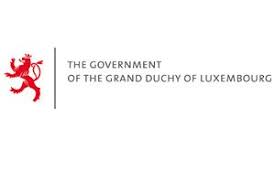Cook Islands 2021/AGILE REPORT/
The 2021 Cook Islands Agile PEFA assessment measures the extent to which current public financial management systems and processes have progressed using the 2016 PEFA Assessment framework as well as identifying areas of weaknesses, including new challenges that could be the focus of further PFM reforms.
The Ministry of Finance and Economic Management (MFEM) initiated the 2014 PEFA Assessment with assistance from the Pacific Financial Technical Assistance Center (PFTAC). The 2014 assessment noted challenges in the areas of multi-year fiscal planning and budgeting, internal control on both revenue and expenditure management, timeliness of external audit and scope of legislative scrutiny. These challenges have in one way or another affected fiscal discipline, strategic allocation of resources, effectiveness and efficiency of service delivery. These challenges formed the basis of the PFM reforms the government set out to implement in the last six years.
The 2021 assessment provides the opportunity to take stock of the progress made following the 2014 assessment. It also helps identify priority areas where attention could be focused on when developing the next PFM Roadmap. The assessment also provides a sound platform for dialogue with development partners in determining their technical assistance in supporting Cook Islands’ reform program. The assessment also provides the authorities with valuable experience in using the PEFA exercise to build country capacity to periodically conduct their own self-assessment.
Economic context
The Cook Islands economy enjoyed continuous strong growth over the period 2012/13 to 2018/19 registering an average growth rate of 5.8% per year. This was driven largely by unprecedented level of tourist arrivals and higher levels of public and private capital investment. Tourist arrivals jumped form 121,772 in 2014/15 to 164,800 in 2017/18 registering an 11 % annual average growth rate. The value of residential and commercial building approvals also increased in the three years to 2017/18.
The tourism industry is the major economic driver in Cook Islands accounting for two-thirds of total economic activity. The onset of the COVID-19 pandemic in early 2020 triggered a severe shock to the economy with travel halted and the industry suffered extensively. As a result, GDP in 2019/20 contracted by 9.0 percent and is expected to contract further in 2020/21 by 5.3 percent. The stimulus plan put in place to reverse the downward trend is expected to drive a gradual return to pre-pandemic tourism levels and trigger stable and stronger GDP growth in the medium to long term.
On the fiscal front, 2019/20 was the first year the Medium-term Fiscal Strategy (MTFS) was put into action. It reconfirmed Government’s commitment to sound fiscal and economic management and signaled adherence to the fiscal rules outlined in the MTFS, improvement in the fiscal balance and a declining debt position. The Government’s focus under the 2019/20 Medium-term Budget targeted an improved productive capacity by investing in infrastructure to drive economic growth, raising revenues through better compliance and ensuring improved access to health and education services.





